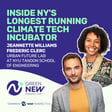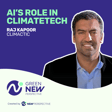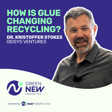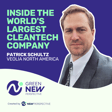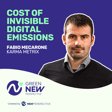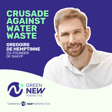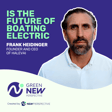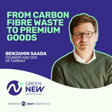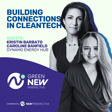
A Sustainable Twist On Carbon Emissions: Podcast With Dioxycle
Join us in the latest podcast episode where we explore the groundbreaking work of Dioxycle, a trailblazer in the field of carbon recycling technology. Co-founder and CTO, Dr. David Wakerley, shares how Dioxycle is transforming the climate crisis by converting harmful CO2 emissions into valuable, energy-rich products.
📚 RESOURCES & LINKS
========================
- Website: https://dioxycle.com
- LinkedIn: https://www.linkedin.com/company/dioxycle
- Twitter: https://twitter.com/dioxycle
- YouTube: https://www.youtube.com/@dioxycle4082
🌍 SUSTAINABILITY PODCAST CREATED BY NEW PERSPECTIVE
========================
This podcast is proudly sponsored by New Perspective Marketing, a dynamic growth marketing agency in Boston, MA, celebrating 20 years in business. We help sustainably focused B2B organizations grow their brands and scale up revenue. If you or your organization is looking to grow, visit npws.com for more info.
🎧 SUBSCRIBE TO OUR PODCAST
===========================
- Spotify: https://bit.ly/3PSWIyI
- Apple Podcasts: https://bit.ly/3RvlHte
- Youtube: https://bit.ly/3RDzkXg
- Deezer: https://bit.ly/3PvQaof
- Amazon Music: https://bit.ly/3PQlijS
- Zencastr: https://bit.ly/48xt75s
💬 FOLLOW US ON SOCIAL MEDIA
============================
- Instagram: https://www.instagram.com/greennewperspective/
- Twitter: https://twitter.com/gnperspective
- LinkedIn: https://www.linkedin.com/company/new-perspective-marketing/
- Facebook: https://www.facebook.com/greennewperspective
- TikTok: https://www.tiktok.com/@greennewperspective
Host: Dunja Jovanovic
Executive Producer: Marko Bodiroza
Creator: Nathan Harris
#cleantech #sustainability #podcast

